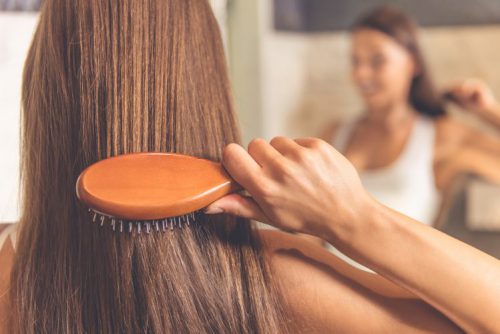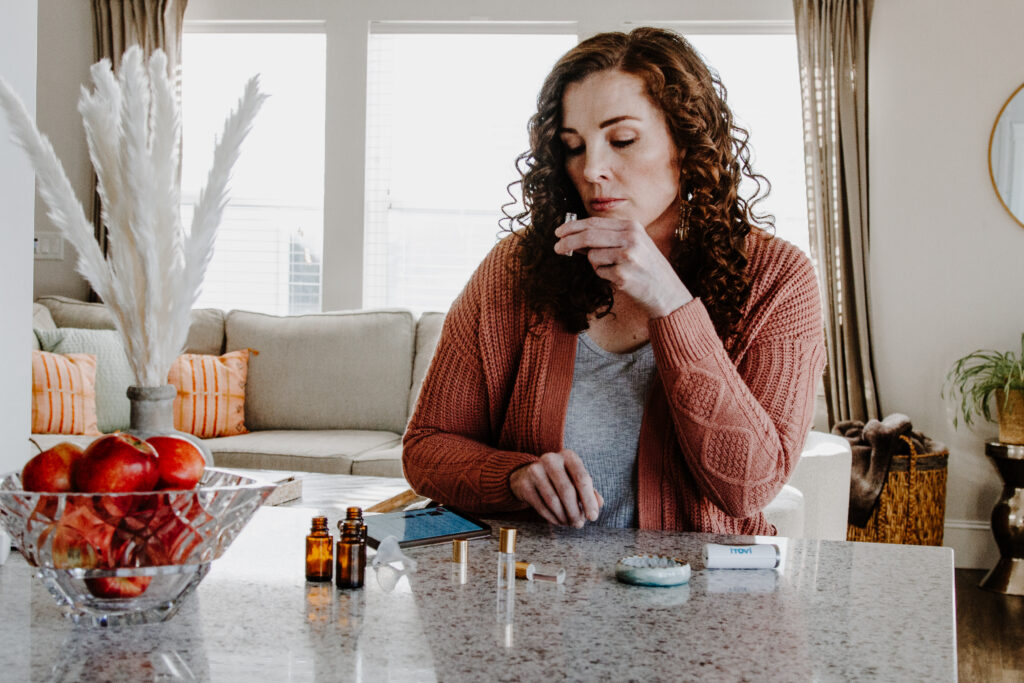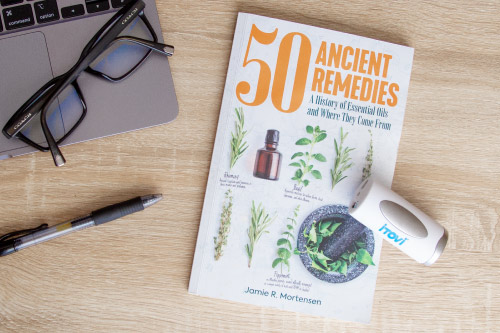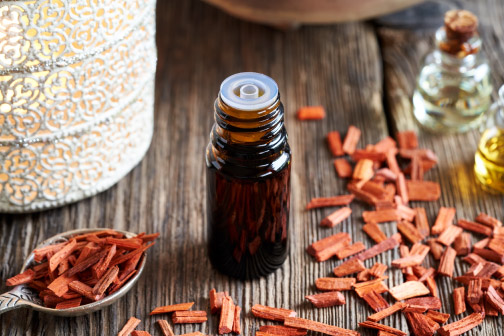
When it comes to our faces, we all have a healthier, more vibrant, younger self hidden under the surface. And the job of an exfoliator is to bring that younger, beautiful self out!
Exfoliation is a powerhouse tool in skincare, partially because a good exfoliation routine elevates and enhances the effect of other skincare solutions, but also because exfoliators encourage the body to produce and show healthy skin.
That said, exfoliators are one of the easiest parts of your skincare routine to get wrong. And they can even damage your skin if used incorrectly.
What are exfoliators? What are the different kinds? How do they affect, for better or worse, different skin types? And can they be enhanced by essential oils? Read on to find out!
Why Use an Exfoliator?
An exfoliator has a delicate job to do.
Its job is to remove the outermost layer of dry, dirty, clogged-up skin and let the natural, newer, softer, brighter, healthier skin underneath show through without scrubbing away too much and irritating the skin!
This is an important job because the older we get, the more prone our bodies become to storing lots and lots of old, dead, dry, and pore-clogging skin cells on the surface of our skin!
And that leads to wrinkles, acne, roughness, and other unpleasant skin conditions.
But when exfoliators scrub the old, dead skin away, you get fresher, newer skin that looks, feels, and is more healthy, with fewer breakouts, scars, or wrinkles.
On top of that, once the old skin is scrubbed away, the newer surface skin is better at absorbing and benefitting from your other skincare solutions like toner, moisturizer, and more!
The Two Types of Exfoliators
There are two types of exfoliators: mechanical exfoliators and chemical exfoliators.
Mechanical exfoliators use a brush, sponge, and/or tiny granules, like microbeads or sugar grains, to scrub away the dead skin on your face.
It’s kind of like sandpaper being used to scrub, clean, and smooth a wood surface—only mechanical exfoliators usually work much more gently.
And chemical exfoliators use specific chemicals, like hydroxy acids, to gently dissolve dead skin cells.
It’s similar to how vinegar breaks down grime and food stains on your counter, so they become looser and easier to wipe away.
What Kind of Exfoliator is Good for My Skin Type?
When it comes to exfoliators and skin types, there’s really just one prime question to ask: How sensitive is my skin?
Those with more sensitive skin (often dry, acne-prone, dark-toned, or dark-spot vulnerable skin types) often do better with a mild chemical exfoliator, while those with less sensitive, thicker skin may prefer a stronger chemical exfoliator or mechanical exfoliation.
It’s okay to take some time to experiment and find out what kind of exfoliator your skin likes.
However, if you are going to experiment with exfoliators in a safe and effective way, there are some basic safety rules you should know.
How Do I Safely Use An Exfoliating Solution?
Safety Rules
Firstly, do not use your exfoliator every day. They are strong and can end up irritating your skin if you use them too often.
Also, the stronger the exfoliator/the more sensitive your skin, the more sparingly you should apply your exfoliator
If you are just starting out with exfoliating, try using your chosen exfoliator once a week. If you do this for a couple weeks with no adverse reaction, you may choose to exfoliate more often, say, one-to-three times a week.
Of course, you’ll also want to check the manufacturer’s instructions for any specific instructions or safety precautions.
How to Apply Your Exfoliator
What you’ll want to do is take your exfoliating solution, smear it over your facial skin (while avoiding getting any in your mouth, eyes, or nostrils), and rub it into your skin for 1-2 minutes.
If it is a mechanical exfoliator with microbeads or sugar you may just choose to use your fingers to rub it in. If it is a chemical exfoliator, it’s more likely that you’ll want a tool, like a sponge, towel, or brush to help you rub the solution into your skin and remove the dead skin cells.
Once you’re done, thoroughly rinse the exfoliating solution off your face with lukewarm water and you’re done!
Can I Use Essential Oils in My Exfoliator?
Some oils, yes. If you use them safely.
See our Blogpost: The Basics of Skin Care & Essential Oils for general safety considerations and read on to learn specifically about essential oils in facial exfoliators.
Of course, the oil you choose for your facial exfoliator will depend on your skin’s needs and sensitivities.
To find the essential oils that work for YOU in an exfoliator you should:
- Do your research
- Do patch tests
- Be willing, while still following safety protocols, to experiment.
To get you started, here is a breakdown of a few oils that are often used in exfoliating solutions:
| Essential Oil | Pros | Cons |
| Lavender Oil |
|
|
| Clary Sage Oil |
|
|
| Geranium Oil |
|
|
| Helichrysum Oil |
|
|
| Bergamot |
|
|
| Rosemary Oil |
|
|
| Frankincense oil |
|
|
| Patchouli |
|
|
| Roman Chamomile |
|
|
| Rose |
|
|
| Ylang Ylang |
|
|
| Learn more about specific essential oils, their benefits, contraindications, and more here. | ||
Conclusion
Exfoliating is a powerful, but often overlooked, step to include in a skincare routine.
It allows you to show your most youthful self and heighten the rest of your skincare routine by making the deeper layers of your skin more accessible.
It’s definitely a skincare step that deserves a little caution, especially if you bring in essential oils. But, if used right, exfoliators and essential oils can help your skin stay vibrant, healthy, and glowing!
If you liked this review on essential oils and facial exfoliators, feel free to leave a comment below and check our other blog posts:
Essential Oils & Facial Cleansers
Essential Oils & Facial Exfoliation
Essential Oils & Facial Toners




